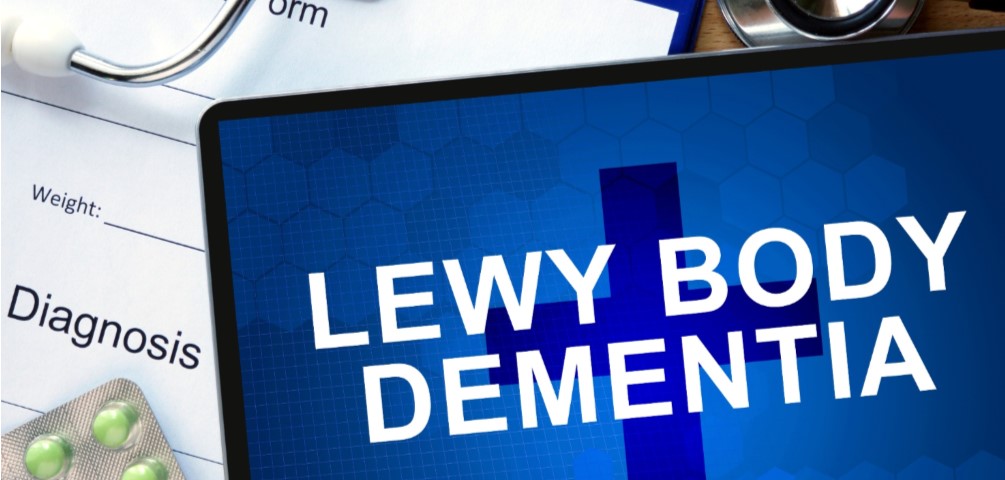July 29, 2019
A Different Kind of Dementia
By Amber McCracken
In recent years, there has an uptick in the number of dementia cases diagnosed. Alzheimer’s Disease International estimated there were approximately 50 million people living with dementia in 2017, and they predict that number will roughly double every 20 years, highlighting just how pervasive dementia is across the world.
While you may have heard of dementia, you may be less familiar with the term Lewy Body Dementia (LBD), or dementia with Lewy bodies. According to the US Library of Medicine, dementia with Lewy bodies is estimated to affect 1.4 million people in the United States. It is the second most common dementia after Alzheimer’s disease, yet only accounts for about 5 percent of all dementia cases in older individuals.
If the condition sounds familiar, you may have heard about it in the news recently. Media mogul Ted Turner revealed in an interview on CBS that he is suffering from Lewy body dementia. And Robin Williams, the well-known comedian and Mrs. Doubtfire and Good Will Hunting actor took his own life in 2014, at the age of 63, while suffering from the little-known disorder.
What is LBD?
Lewy bodies are named for Dr. Friederich Lewy, the German neurologist who in 1912 discovered abnormal protein deposits that disrupt the brain’s normal functioning in people with Parkinson’s disease. These abnormal deposits are now called “Lewy bodies.” According to the National Institute on Aging (NIA), Lewy body dementia (LBD) is a disease associated with these abnormal protein deposits in the brain. NIA states “these deposits affect chemicals in the brain whose changes, in turn, can lead to problems with thinking, movement, behavior and mood.”
Doctors do not yet know what causes the condition and, unfortunately, there is no cure. LBD is often confused with Alzheimer’s (due to mental confusion) and/or Parkinson’s Disease (due to shaking and trouble with movement). But unlike either of these conditions, people with LBD don’t typically have a measured, steady decline. LBD is much more unpredictable. For instance, mental capacity may be poor in the morning and but sharp in the evening. Or a person may have the ability to walk one day and be completely bed-ridden the next.
A new study in The Lancet, “Investigating the genetic architecture of dementia with Lewy bodies: a two-stage genome-wide association study,” underscored that LBD has a unique genetic profile, distinct from other types of dementia.
“Dementia with Lewy bodies is often misunderstood as being a mixture of Alzheimer’s and Parkinson’s, but this confirms it’s actually a unique condition,” said Doug Brown, Ph.D., director of research at Alzheimer’s Society, which funded the study.
According to the study, patients with LBD don’t have as much trouble with short-term memory as Alzheimer’s patients, but they deteriorate more rapidly and patients experience paranoia and hallucinations along with failing executive function.
“Dementia with Lewy bodies accounts for 10 to 15 percent of dementia cases, yet our understanding of it lags beyond the more well-known Alzheimer’s disease, partly because it’s commonly misdiagnosed,” said senior study investigator Jose Bras, Ph.D., a UCL Institute of Neurology and Alzheimer’s Society senior research fellow. “Our findings clarify the disease’s distinctive genetic signature, which should, in the future, help improve clinical trials and lead to more targeted treatments.”
Symptoms of LBD
The Mayo Clinic lists the following symptoms of dementia with Lewy bodies on their website:
- Visual hallucinations. Hallucinations may be one of the first symptoms, and they often recur. They may include seeing shapes, animals or people that aren’t there. Sound (auditory), smell (olfactory) or touch (tactile) hallucinations are possible.
- Movement disorders. Signs of Parkinson’s disease (parkinsonian signs), such as slowed movement, rigid muscles, tremor or a shuffling walk may occur. This can also result in falls.
- Poor regulation of body functions (autonomic nervous system). Blood pressure, pulse, sweating and the digestive process are regulated by a part of the nervous system that is often affected by Lewy body dementia. This can result in dizziness, falls and bowel issues such as constipation.
- Cognitive problems. You may experience thinking (cognitive) problems similar to those of Alzheimer’s disease, such as confusion, poor attention, visual-spatial problems and memory loss.
- Sleep difficulties. You may have rapid eye movement (REM) sleep behavior disorder, which can cause you to physically act out your dreams while you’re asleep.
- Fluctuating attention. Episodes of drowsiness, long periods of staring into space, long naps during the day or disorganized speech are possible.
- You may experience depression sometime during the course of your illness.
_________________________
Amber McCracken is the executive director of Current Communications, a boutique consultancy that helps organizations with their marketing and public relations activities. Amber has worked with GHI since 2014, providing her expert advice to support Goodwin Living At Home. She contributes regularly to The Good Life, both as a writer and editor. Amber lives in North Carolina with her husband and two children.





